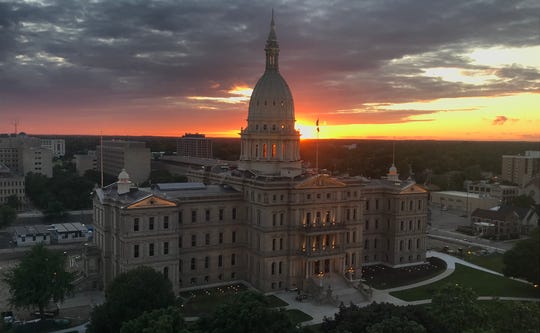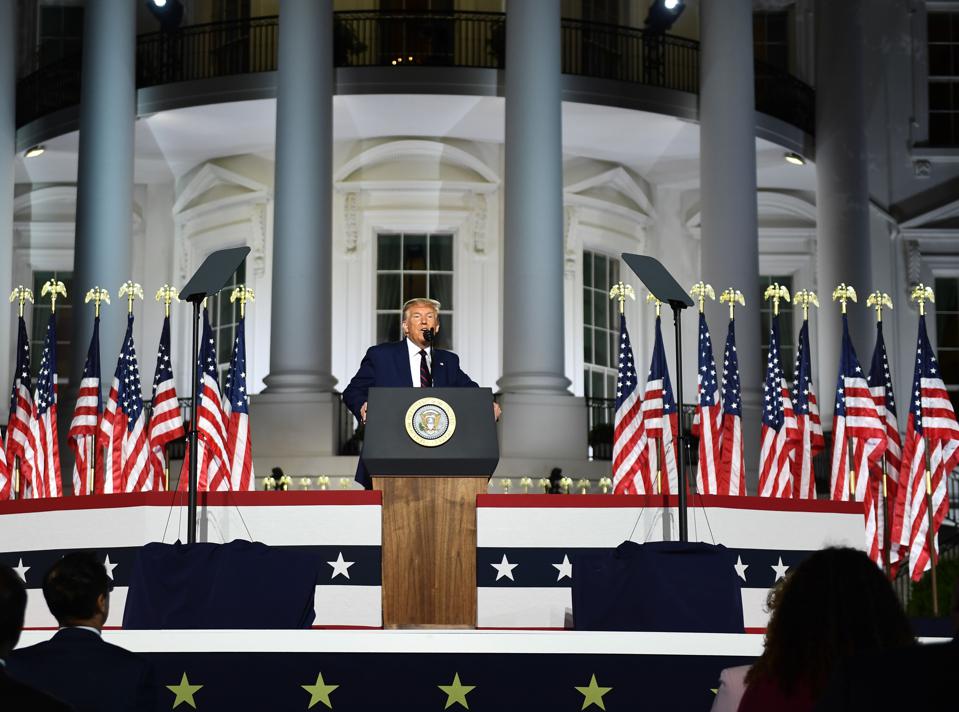CONNECTCOMMENTEMAILMORE
Lansing — Lobbying firms, interest groups and businesses tied to individuals steeped in Michigan politics have received millions of dollars in forgivable federal loans aimed at keeping workers on the job during the COVID-19 pandemic.
Among those approved for financial support through the Small Business Administration’s Paycheck Protection Program (PPP) are Planned Parenthood of Michigan, the Michigan Catholic Conference, a company owned by Senate Majority Leader Mike Shirkey, R-Clarklake, and two of the state’s largest lobbying firms, according to federal disclosures.
Although nonprofits involved in Michigan politics have received PPP loans, the money can’t go to the types of organizations that directly campaign for candidates. For the loans to be forgivable, the cash must be used for payroll costs, interest on mortgages, rent and utilities.
The program is intended to help small organizations keep workers on their payrolls during a pandemic that’s inspired government-required closures of businesses, said Brian Calley, former lieutenant governor and president of the Small Business Association of Michigan, which has helped inform businesses about the loans.
“It was targeted to small organizations,” Calley said when asked about some of the nonprofits that received support. “If you qualified under the law and didn’t apply for it, in some ways, I think that would have been a dereliction of duty to the organization.”
The program guarantees loans that are made by lending institutions. The loans can be forgiven based on whether employers maintain or quickly rehire employees over an eight-week period. Nearly $16 billion in loans had been approved for more than 120,000 Michigan entities as of the end of June, according to the Small Business Administration.
On Monday, the SBA released information on organizations that had received loans nationally, including the names of about 20,000 businesses and nonprofits in Michigan that were approved to receive at least $150,000. The data didn’t identify those receiving less than $150,000 each and listed only broad ranges of amounts companies received instead of specific totals.
Firms tied to Shirkey, James
Among those slated to receive between $1 million and $2 million was Jackson County-based Orbitform Group, a company owned by Shirkey. The support helped retain 110 jobs, according to the company.
“He employs a management team to handle the business operations,” Shirkey’s spokeswoman Amber McCann said. “The manager made the decision to seek a PPP loan — as have many businesses that are working through the impact of COVID on the economy.”
Another Republican politician, U.S. Senate candidate John James, who’s challenging U.S. Sen. Gary Peters, D-Bloomfield Township, leads a Detroit company called Renaissance Global Logistics that also received between $1 million and $2 million through the program.
“As an essential business shipping automotive parts, RGL used the funds to keep employees on their health care plans through the crisis and support their customers who took significant losses,” said Abby Walls, campaign spokeswoman for James. “RGL was among the 5% of minority-owned businesses to gain access to PPP funds and used their business resources to aid their Detroit community by helping to deliver hundreds of thousands of units of meals, PPE (personal protective equipment) and cleaning supplies during the crisis.”
A restaurant run by state Rep. Tommy Brann, R-Wyoming, also received a loan. Tommy Brann’s Steak and Seafood got between $150,000 and $350,000, according to the federal disclosures.
Brann said he hadn’t decided as of Tuesday whether to use the money. The lawmaker said he’s operated his restaurant for nearly 50 years and its longest closure before 2020 was three days because of a snowstorm. During the pandemic, the restaurant was closed for about eight weeks, he said.
“I don’t look at it as a handout. I look at it as redemption,” Brann said of the loan.
Lobbying firms and interest groups
Among the Michigan lobbying firms that were approved for a PPP loan were Kelley Cawthorne and Governmental Consultant Services Inc., according to the federal disclosures.
The two firms ranked among the top three disclosed spenders on lobbying in Michigan in 2018, according to the Michigan Campaign Finance Network.
“We are proud to be a voice at the Capitol during this difficult time for our schools, health care providers and emergency responders,” said John Sellek, spokesman for Kelley Cawthorne. “By participating in the PPP program, along with many other Lansing small businesses, we were able to keep working for our teachers, hospitals and firefighters when they needed it most.”
Planned Parenthood of Michigan and the Michigan Health & Hospital Association, which often weigh in on public policy, were among the groups approved for large sums.
Planned Parenthood of Michigan received between $2 million and $5 million. And the Michigan Health & Hospital Association received between $1 million and $2 million.
“Our health centers and our health center staff provide essential health care in communities all across the state,” said Angela Vasquez Giroux, spokeswoman for Planned Parenthood of Michigan. “Our patients can’t wait, and in the middle of an ongoing global pandemic, it’s more important than ever that our providers and our staff are able to give our patients and our communities the care they rely on.
“The PPP loan allowed Planned Parenthood of Michigan to continue providing that essential care.”
The Michigan Catholic Conference, which is often on the opposite end of political debates with Planned Parenthood, also received a loan of between $350,000 and $1 million, according to the federal government’s disclosure.
The Michigan Catholic Conference used the funds to retain employees, which is the purpose of the program, said David Maluchnik, the organization’s spokesman.
The conference maintains a lay workforce that assists the Catholic dioceses in Michigan with administrative functions related to pensions, health benefits and insurance, Maluchnik said.
The Michigan Health & Hospital Association applied for funds to ensure it could maintain staffing and service levels should its revenue decline, said John Karasinski, the association’s spokesman.
The Progress Michigan Education Fund, which operates under the name Engage Michigan and is a different but related organization to the liberal group Progress Michigan, also received between $150,000 to $350,000, according to disclosures.
Another nonprofit, The Center for Michigan, which publishes Bridge Magazine, received funding. The organization applied “due to significant financial threats and uncertainties caused by the pandemic, including delays and reductions in grant funding and corporate sponsorships,” said John Bebow, president and CEO of The Center for Michigan.
“A wide range of media and nonprofit organizations in Michigan applied,” Bebow said, adding, “Consistent with program guidelines, we have used the funds for payroll, to sustain our full public service operations and to assure full staffing.”
cmauger@detroitnews.com
CONNECTCOMMENTEMAILMORE
Read or Share this story: https://www.detroitnews.com/story/news/politics/2020/07/07/groups-tied-michigan-politics-benefit-federal-loan-program/5390981002/



